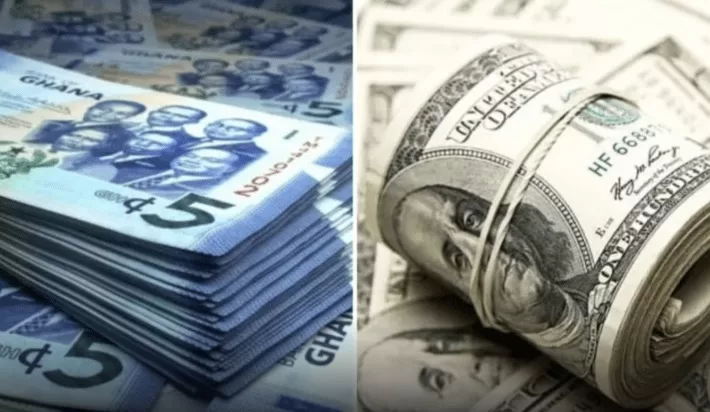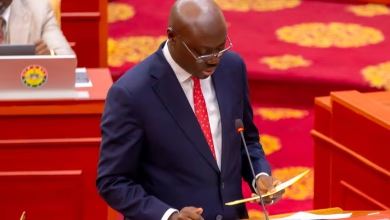“Election And Import Factors Affecting Cedi – Economist”

- Cedi plummets to record low against USD.
- Ghana's trade deficit worsens, fueling Cedi's decline.
- Businesses struggle with rapid depreciation and high costs.
Ghana’s currency, the Cedi, is facing significant challenges due to the country’s persistent trade deficit and election year jitters, according to Professor Patrick Asuming of the University of Ghana Business School. The Cedi’s woes are largely attributed to Ghana’s heavy reliance on imports, which far exceed its exports. This imbalance has resulted in a rapid depreciation of the currency.
Professor Asuming emphasized that the Cedi’s troubles are deeply rooted in the country’s trade balance, which has consistently favored imports over exports. In a typical year, the Cedi depreciates by around 5%, but this year’s trade balance is significantly lower than last year’s, with imports almost twice as high as exports.
Furthermore, the election year has added to the Cedi’s woes, as investors are increasingly cautious about the economy. This combination of factors has led to a perfect storm, causing the Cedi’s value to plummet.
The Chief Executive Officer of the Chamber of Commerce, Dr. Mark Badu-Aboagye, also expressed concerns about the Cedi’s performance, stating that it is having a devastating impact on businesses. The rapid depreciation of the Cedi and high operating costs are causing significant distress for businesses in Ghana.
Ghana’s Cedi has been on a record-breaking weakening cycle, with no gains against the US dollar in the past 22 trading sessions. This is the longest streak since 1994, according to data compiled by Bloomberg. The currency has declined by 14% this year, making it one of the worst-performing currencies globally.
The slide in the Cedi’s value is largely attributed to a slump in cocoa earnings, which have dropped by nearly a third due to adverse weather conditions, disease, and fertilizer shortages. Additionally, Ghana’s historical current account deficit is resurfacing, signaling further challenges for the Cedi.
Experts predict that the Cedi’s forward curve will breach its record low of 14.6174 per dollar by the third quarter, ending the year at 15.98. This forecast is based on the spot rate and interest rate differentials between the two currencies for the tenor of the forward.
In light of the Cedi’s poor performance, Kojo Yankah, a Minister of State under the Rawlings administration, has urged the government to prioritize providing incentives for businesses to produce more, rather than introducing new taxes. Mr. Yankah believes that taxing businesses amidst the dwindling fortunes of the local currency is only suffocating the business community.
The Cedi’s challenges are complex and multifaceted, with no clear solution in sight. The combination of a persistent trade deficit, election year jitters, and a slump in cocoa earnings has created a perfect storm that is likely to continue affecting the currency’s value in the coming months.






